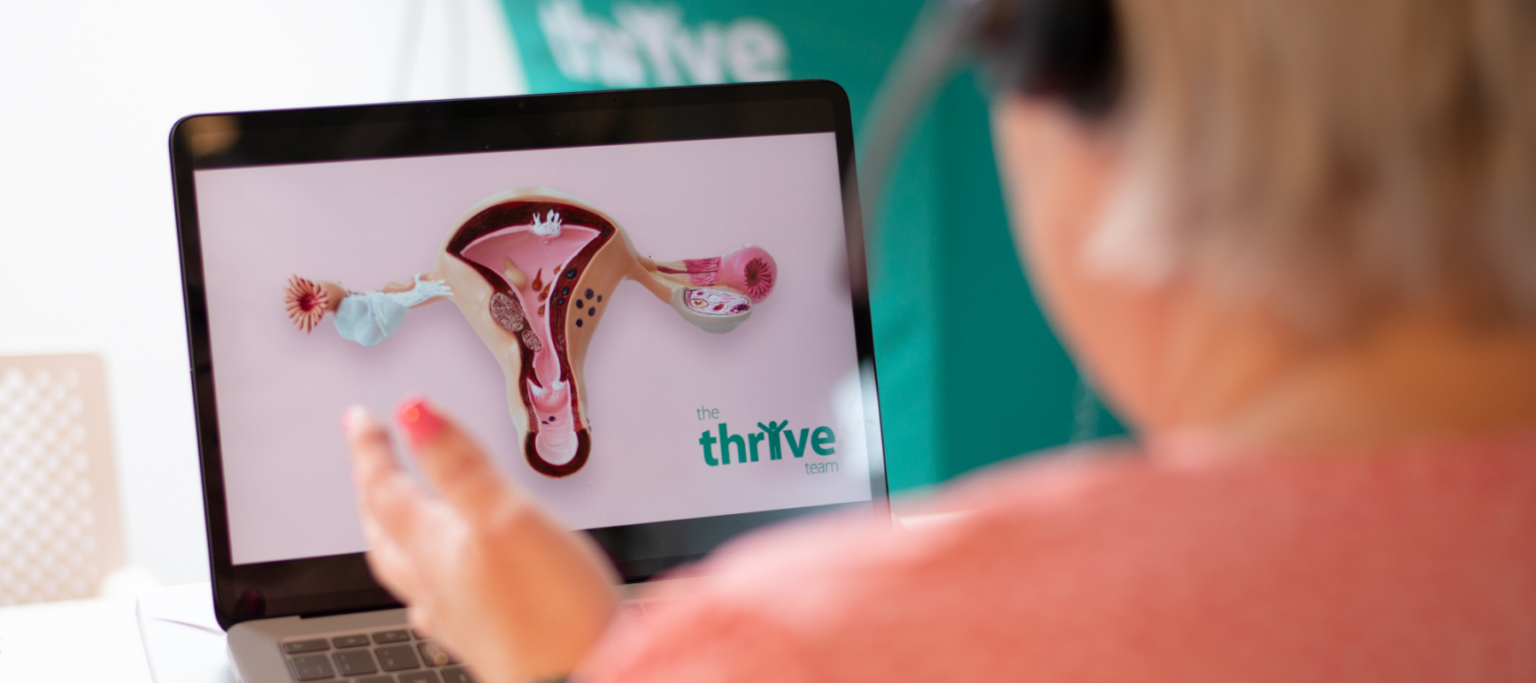Endometriosis is a chronic and painful gynaelogical condition. In the UK, around 1.5 million women, and those assigned female at birth are currently living with the condition, regardless of race or ethnicity. Endometriosis can affect individuals from puberty to menopause, although the impact may be felt for life. March is Endometriosis Awareness month, a time to raise awareness about the condition and to support those who are affected by it.
Endometriosis is a condition where tissue similar to the lining of the uterus grows outside of the uterus, often on the ovaries, fallopian tubes, other organs in the pelvic region and elsewhere in the body. This tissue responds to hormones and can cause inflammation, scarring, and pain. Symptoms can include painful periods, pelvic pain, pain during sex, and infertility.
Despite its prevalence, endometriosis is often misunderstood, and the impact it has on women’s daily lives, including in the workplace, is often overlooked. Endometriosis costs the UK economy £8.2bn a year in treatment, loss of work and healthcare costs1.
Ali Grady, our Co-Founder and Director of Coaching and Training suffered with endometriosis for over 20 years before having a hysterectomy at 42 and knows the significant impact it can have on an individual, their personal and work life.
In this article, the first in a two part series, we have explored some of the impacts of endometriosis in the workplace and what employers can do to support employees with this condition.
Impact on Productivity
Endometriosis can cause a range of symptoms, including severe abdominal pain, fatigue, and irregular periods, which can significantly impact a woman’s ability to work. According to a report by the APPG on endometriosis1 55% of women who live with endometriosis have had to have time off work often or very often due to their condition, and 38% are restricted in the work they can do.
Impact on Mental Health
Endometriosis not only affects a woman’s physical health but also her mental health. The chronic pain and fatigue associated with endometriosis can lead to feelings of frustration, hopelessness, and depression with 73% reporting that they felt worried about the effect endometriosis may have on their future1. These feelings can then impact a woman’s ability to perform her job, her confidence, and her overall wellbeing.
Lack of Support in the Workplace
Despite the impact of endometriosis in the workplace, many women report feeling unsupported and misunderstood by their employers. According to the APPG research, 35% of women feel that due to their endometriosis they have had difficulty pursuing the career they wanted, with 27% believing that they have missed out on promotion and 28% have had to change or leave their job1.
What Employers Can Do
Employers can play a crucial role in supporting employees with endometriosis in the workplace. The APPG report recommends that Employers should be comfortable in talking about endometriosis with their staff, and in turn, help employees feel supported in talking about the impact it may have on their work. Raising awareness and educating managers and employees about endometriosis and its impact on the workplace can help people understand the condition and provide support to their colleagues. Providing flexible work arrangements may also help by allowing employees to work from home or have flexible work hours can help reduce the impact of endometriosis symptoms on their ability to perform their job duties. We explore this in more detail in the second of our Endometriosis in the Workplace articles, A Manager’s Role.
Endometriosis has a significant impact on the workplace, and employers have a responsibility to support employees with this condition. By educating themselves, providing flexible work arrangements and education, employers can create a supportive and inclusive workplace for all employees.
If you’d like to speak to us or find out more about how we could support your or your business in raising awareness of endometriosis and enabling your teams to feel comfortable talking about endometriosis, get in touch here. We’d love to hear from you.


